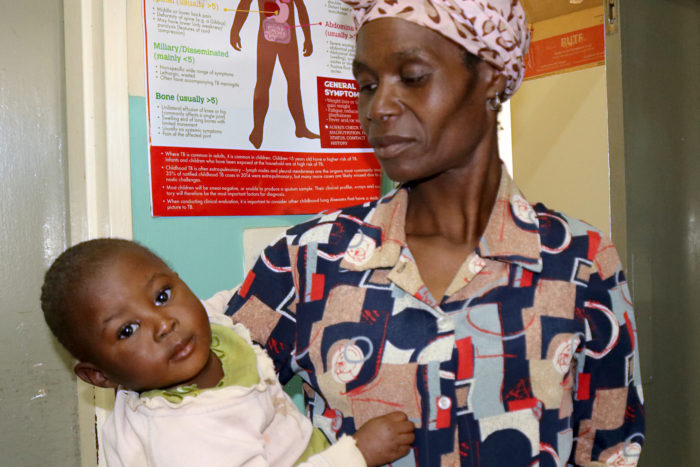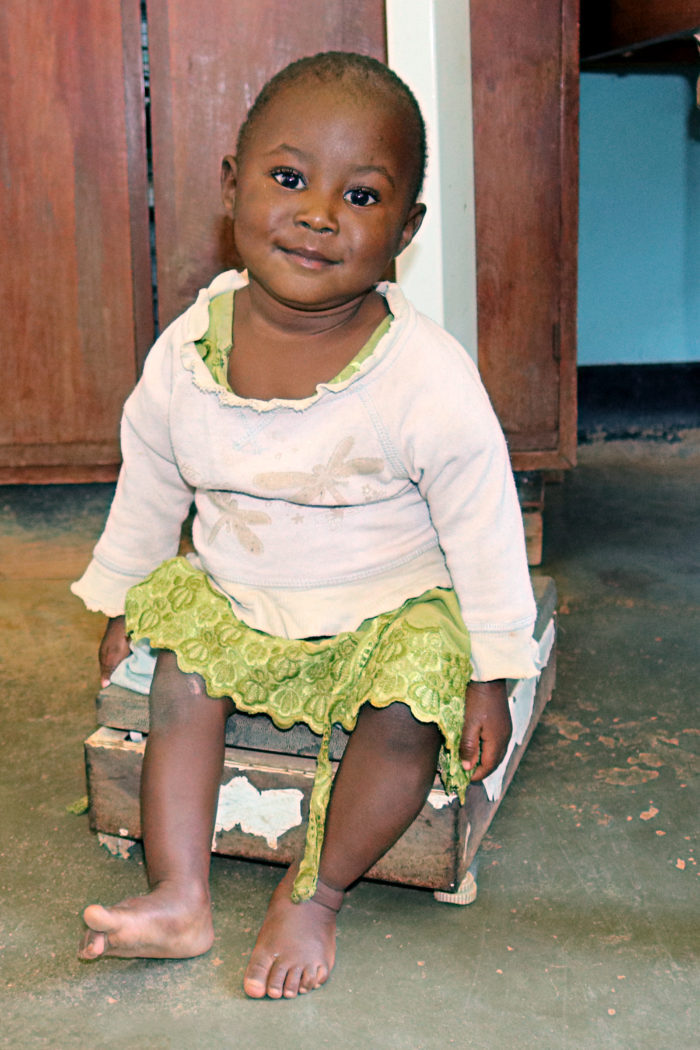When doctors informed Lunia Alick that her 15-month-old granddaughter, Mercy, was diagnosed with tuberculosis (TB), she feared that she would lose the child. Lunia could clearly see that the once-bouncing-baby-girl was suffering.
“She became very weak as each day passed. She developed a persistent fever and lost weight,” explains Lunia.
Mercy’s mother had been diagnosed with and treated for TB. Lunia did not suspect TB in her granddaughter because Mercy had been healthy during most of her mother’s illness.
“To tell the truth, I did not think that she had TB. She did not even have a cough,” says Lunia.

But while her mother’s health improved, baby Mercy started getting sick. Her legs swelled, she developed a small rash, and she became listless.
Lunia took the baby to the nearest health facility in the Kaluma area, which is about 15 km from her home village of Kafumbu in Dedza District. There, she received treatment for her symptoms—but after one week, there was no improvement. Lunia and Mercy went back to the same clinic and were referred to Dedza District Hospital, where Mercy’s mother had been admitted and treated for TB.
Health workers conducted a chest X-ray on Mercy, but they could not detect TB. However, a second X-ray test came back positive.
Diagnosing TB is a particular challenge when it comes to children, as it is often missed due to non-specific symptoms and a lack of sensitive and child-friendly diagnostic tests. Health care workers also often lack sufficient knowledge about TB and lack capacity to screen for TB in children and provide prevention services.
In Malawi, TB is the leading cause of death among people living with HIV. According to Malawi incidence data from the World Health Organization (WHO), more than 3,000 new pediatric TB cases are documented in Malawi each year.
To address these critical gaps in prevention and diagnostic services in childhood TB, the Elizabeth Glaser Pediatric AIDS Foundation (EGPAF) launched the Catalyzing Pediatric Tuberculosis Innovation (CaP TB) Project in 2017. With funding from Unitaid, EGPAF is supporting this innovative program at 40 health facilities in Malawi, including Dedza District Hospital.
The project brings new innovations for routine TB screening in all service delivery points. This includes training cough monitors (staff who observe patients for TB symptoms) and orientating health care workers on pediatric TB management, which focuses on improved clinical diagnosis and chest X-ray interpretations. In addition, CaP TB utilizes Cepheid’s GeneXpert diagnostic instrument to test sputum samples. This equipment is much more sensitive than methods used in the past and more easily detects the presence of TB in children.
“We received pediatric TB trainings and we now have the equipment and capacity to diagnose TB in children,” says Anisen Mphande, a TB officer at Dedza District Hospital. Mphande says that many children under age 10 are screened for TB every day at the hospital and that five children are currently receiving TB treatment. Mercy is one of those children.
“It was more difficult to diagnose [Mercy’s] illness because it is extrapulmonary TB. This means the TB is outside her lungs and attacked her lymph nodes,” says Mphande. “Fortunately, she started improving immediately. We are happy with her progress.”
Mercy is now in her fourth month of treatment, and her health has bounced back. Lunia, who once lost hope, now looks forward to watching her granddaughter grow up.

“EGPAF appreciates the funding from Unitaid to be able to implement this project and support other children in Malawi like Mercy,” says Veena Sampathkumar, EGPAF- Malawi’s country director. “All it takes is political will, commitment, and resources to make sure that we integrate available diagnostics, prevention, and treatment options into the public health system to make a catalytic impact on TB.”
To this end, EGPAF is working hand in hand with the Ministry of Health to successfully implement effective and innovative models of care to improve detection of pediatric TB in Malawi.
“We can reduce and fully fight pediatric TB morbidity and mortality by use of innovations in diagnostics, treatment, and implementation models,” says Malawi Secretary for Health Dan Namaleka, M.D.




